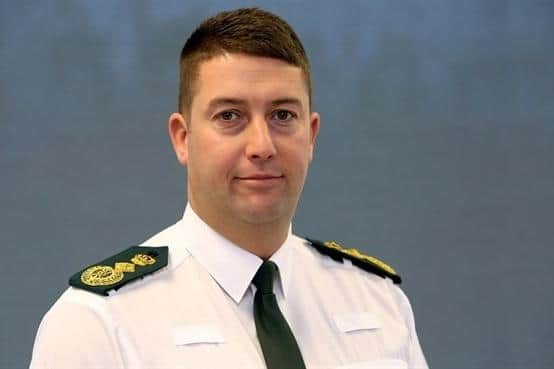East Midlands paramedics spent ‘phenomenal’ number of hours waiting outside hospitals in December
and live on Freeview channel 276
An average of 888 hours a day were lost in December 2022, equivalent to 74 twelve hour shifts a day.
The figures were discussed by senior managers during the latest EMAS board meeting.
Advertisement
Hide AdAdvertisement
Hide AdThe pressures mean EMAS “is not currently delivering consistently safe services”, according to Nichola Bramhall, EMAS director of quality improvement and patient safety.


The service covers Nottinghamshire, Derbyshire and Lincolnshire, as well as Leicestershire, Rutland and Northamptonshire.
Nationally, soaring winter pressures on available beds have seen ambulances queueing outside hospitals during long waits to hand over patients.
This is largely due to patient flow problems through hospitals where there are often hundreds of patients who are medically fit for discharge but cannot leave because there is no space for them in the social care system.
Advertisement
Hide AdAdvertisement
Hide AdThe whole Nottinghamshire NHS was put under ‘critical incident’ status in December, due to the increasing demand.
In September 2022, 14,800 hours were lost to handover delays, which EMAS said was a record at the time.
Ben Holdaway, EMAS operations director, said: “I said in the October board meeting we’d broken all records. Then in December, we went and smashed that record to a degree I never thought we’d see.”
Members of the GMB union who work for the trust are due to strike tomorrow, January 11, but Richard Henderson, EMAS chief executive, said they would “continue to provide a response to acutely ill patients”.
Advertisement
Hide AdAdvertisement
Hide AdHe said EMAS “cannot deliver a normal service” given the “phenomenal amount of lost hours”, but said “things are starting to improve post the New Year period”.
He said: “We are the flashing beacon in the community and when all of this is stacked up, we can’t get to our patients.
“It’s understood the frustration for our front-line workforce is the fact they are not able to consistently perform the duties they are here to do.
“There are many incidences where they are spending hours with patients in the back of an ambulance which is not a skill they are trained to perform.
Advertisement
Hide AdAdvertisement
Hide Ad“They know at the same time there are more calls in the community and they are not able to go to those patients. That is the one most significant issue impacting their welfare and wellbeing. It has a ripple effect.
“They are not getting home and finishing duties in a timely manner. It is a complex issue we can’t fix on our own.”
Karen Tomlinson, EMAS chairman, said the figures showed “the stark reality of what’s happening”.
She said: “In December we almost doubled our lost hours compared with previous figures.
Advertisement
Hide AdAdvertisement
Hide Ad“That’s a phenomenal impact. In terms of the pressure on the system, the risk to our patients and industrial action, we cannot lose sight of the seriousness of the impact this is having on the NHS.”
The board meeting’s papers stated four ‘serious incidents’ were reported in December relating to delayed responses or prolonged waits for an ambulance.
Ms Bramhall said the number is likely to “significantly increase” due to the pressures seen in December.
